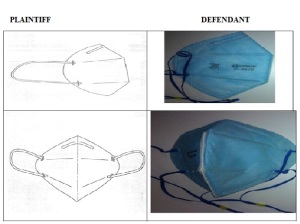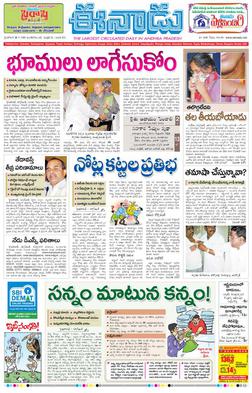3M Innovative Properties Company & Anr. Vs. Venus Safety & Health Pvt. Ltd. & Anr.
3M Innovative Properties Company & Anr. Vs. Venus Safety & Health Pvt. Ltd. & Anr.
Plaintiff No. 1 was the owner of the suit patent for flat folded personal respiratory device. The invention was being used against air pollution specifically for dusts. It was alleged by the plaintiffs that the defendants infringed their suit patents. The Plaintiff pleaded knowledge of the defendant’s activities from August, 2013. The Hon’ble Delhi High Court granted an ex-parte injunction in favour of the Plaintiffs. The Defendants were restrained from manufacturing and marketing their product in question. The Defendant filed an application towards vacation of stay.
Defendants’ case:
• Patented product was already known, prior published/registered and used in foreign countries
• Defendant has been in the market since 2011 within the knowledge of the plaintiffs.
• As per Section 13(4) of the Patent Act, 1970 there is no presumption of validity in respect of a patent granted under the Act.
• There are many dissimilarities in the Defendants’ product in question
• Process of manufacturing of the Defendants’ product is completely different from the suit patent.
Plaintiff’s Rejoinder:
• Patent granted is prima facie innovative and the patent certificate is evidence in so far as the validity of the suit patent is concerned.
• The Defendants’ contention that the six year rule with respect to the presumption of validity has been diluted by this Court is erroneous.
• If the patent is sufficiently old and has been worked, the Court would for the purpose of temporary injunction presume the patent to be a valid one.
Court’s Observations:
On Presumption of Validity:
The Hon’ble Court relied on Biswanath Prasad Radheyshyam v. Hindustan Metal Industries; PTC (1979) 2 SCC 571, J Mitra Vs Kesar Medicaments; 2008 (36) PTC 568 and F. Hoffman-La Roche Ltd. & Anr. v. Cipla Ltd.; 159 (2009) DLT 243 (DB) and held that:
“it is clear that there is no presumption of the validity attached to the patent. The scheme of the Act clearly permits to raise the challenge to the patent by the defendant in an infringement proceedings filed by the plaintiff before the court. Thus, in no way the said challenge can be brushed aside by the court by attaching some kind of presumptive approach when the statute provides none. The court has to test the challenge raised by the defendants on merits in order to evaluate as to whether the defendant has raised some serious triable issue or a substantially tenable or credible challenge or not. Depending on the answer to the said enquiry rests the prima facie view on the validity of the patent and grant or non grant of the injunction.”
The Court further held that “In case the Legislature had intended to provide prima facie evidence of validity in the case of patents then a provision similar to Section 31 of the Trademarks Act would have been incorporated under the Patents Act, 1970.”
On Six Year Rule towards validity of Patent as laid down in Manicka Thevar’s Case and followed by later judicial pronouncements:
• Six Year rule cannot be applied in general in patent matters.
• It is actually one of the factors to be considered at the time for granting or not granting injunction or at the time striking balance between the parties.
• The basic law is that if the patent is found to be prima facie valid and the court finds that it has been infringed by the defendant, the case of passing the interim order is made out, even if the patent is used for a smaller period of time.
• At the same time, if the patent is challenged in the written statement and by filing of counterclaim, the said period of six years does not give any benefit to the owner of patent in case court after having gone into material found that the patent is otherwise prima facie invalid.
• Under those circumstances, the interim order may not be passed even if the patent is six year old.
On principles governing the grant of injunction in patent matter:
• At an interim stage the Defendant need not prove actual invalidity to show that the claims at issue are vulnerable and that a substantial question of invalidity can be sufficient to defeat the grant of an interim injunction.
• A mere showing of a substantial question of invalidity is sufficient at this stage.
• The court has to see the tenability and the credible nature of defence while deciding the grant or non-grant of injunction. If the defendant’s case is found to be tenable and there are serious questions as to validity to be tried in the suit, then the interim injunction may not be granted.
On Merits:
Prima facie, Patent of the Plaintiffs was found to be hit by prior arts cited by the Defendants and was found to be known and thus was held to be not novel. The Hon’ble Court found that the claims of the impugned patents were already known and obvious to a person skilled in the art on the basis of three existing three prior arts cited by the Defendants and also by the product of the Defendant No. 1 launched in 1994.
The injunction order was vacated and the application for interim injunction filed by the Plaintiffs was dismissed.


